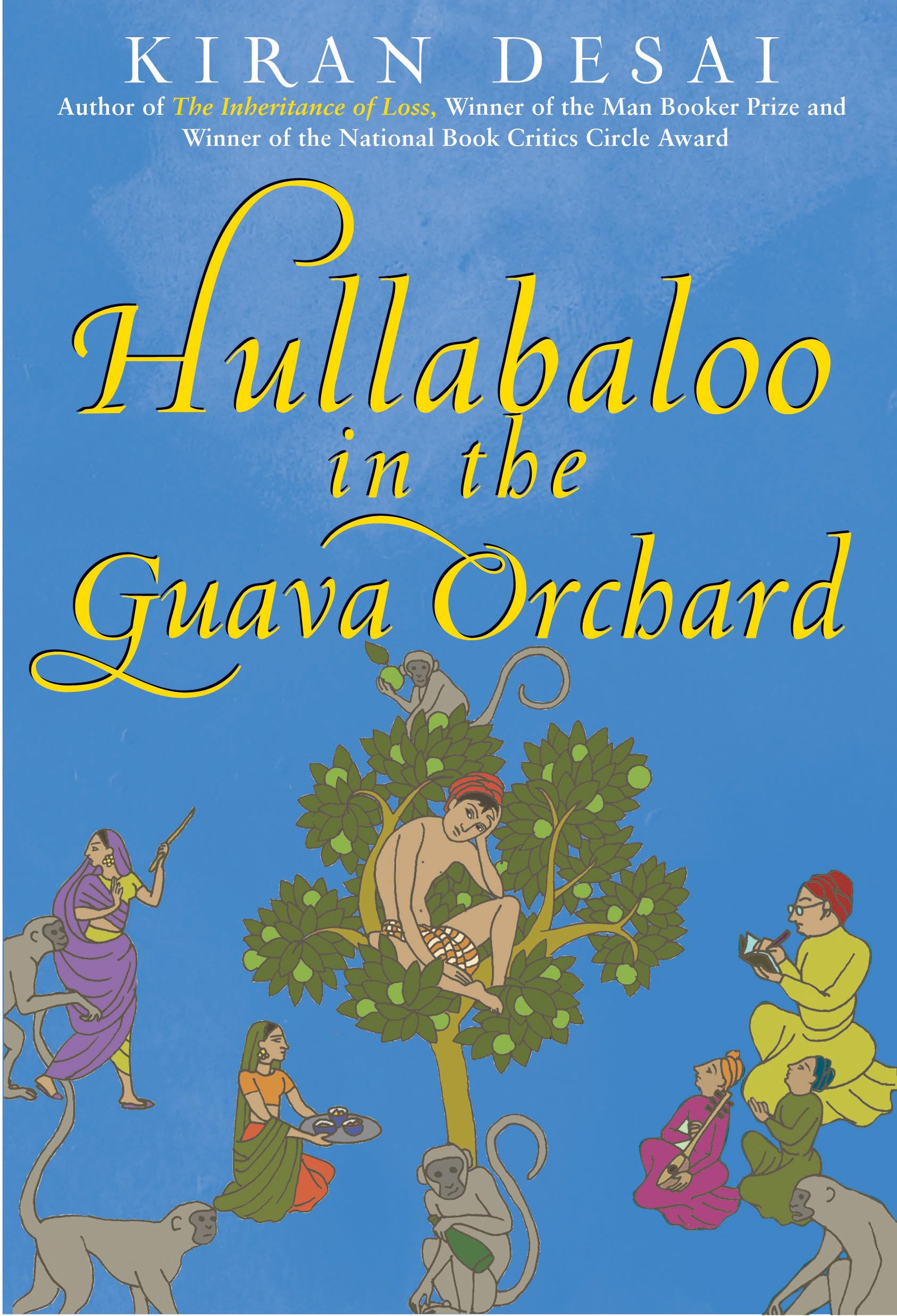

Grove Press Hullabaloo in the Guava Orchard
V**A
Loved it
Awesome story
B**N
A feast of storytelling
Often moving, frequently hilarious, this charming story of a dysfunctional family in rural India is a real winner: a face that deepens as the family's son takes to the trees as a sort-of-guru. Since reading it, I have been pushing it mercilessly on to friends and family. To say that is is a parable about the power and value of literature and the imagination, when confronted by utilitarian values, is to miss its humanity and readability. A great read.
R**Y
It’s a crazy story! An underrated book!
Well! This is such a weird read!I am impressed and I do feel this book is so underrated. I expected the writing to be not this fast paced and so easy to read in just one sitting!I find the characters realistic though the story has some fantastical elements in the plot.I can understand the dilemma of our main character Sampath. He’s not the picture perfect main central character. He’s the son the entire family and everyone around him have the highest hopes for like he’s the sole purpose of their lives.When the son of the family doesn’t turn out to be as what was predicted, things seemed to stop still especially for Sampath.The story is quite enjoyable and entertaining throughout. It will be more so for the readers who are familiar with how it is with most Indian families.The dialogues are so realistic that it made me want to run away and escape in another fictional story.The characters are amazingly realistic however I do still feel that at least I should have known Sampath really well. At times they seem quite detached like how the actual people in our real lives are but also acting so close making decisions for our lives totally uninvited. And this is how the writing felt so real.The plot seems not much but the short read is quite colourful and full of adventure if you are willing yourself to feel and try to live in this world until the last page.Totally a surprising read!Enjoyed the read thoroughly.
L**4
An amusing novel
Kiran Desai's novel about a societal misfit who decides to get away from it all and live in a guava tree is amusing. It is a light-hearted look at India's caste system, its structured society, arranged marriages, and holy men. The novel provides a good introduction to the works of foreign authors.
D**H
How to lose your job and live in a tree: a primer
Behind every prophet is a trickster. In Sampath Chawla's case, he loses his job as a postal clerk after performing an impulsive striptease at the wedding of his boss's daughter. "How he hated his life. It was a never-ending flow of misery. It was a prison he had been born into. The one time he has a little bit of fun, he was curtailed and punished." And so, when his family attends another wedding, they leave Sampath at home "to be sure he would not pull down his pants at yet another important event." And that's when the young man decides to live in a guava tree and eventually convinces his neighbors that he's a mind-reading guru by publicly revealing their most closely held secrets. Little do they know: he's been steaming open their mail for months.The basic story--boy gets sick of family, boy heads up a tree, boy decides to live in the trees, young man becomes famous as a guru of sorts--shares much with Italo Calvino's "The Baron in the Trees." In spite of the addition of monkeys and the change of setting to India, it's almost impossible for readers who have read Calvino to not think of his 1957 parable. (Note to authors: I do think the genre of satirical bildungsoman featuring a tree-living renegade-boy turned prophet is pretty much tapped out at this point.) Calvino sets his tale on a broader canvas: the adventures of his tree-guru provide a sardonic window on the Age of Enlightenment. For her part, Desai keeps her story local, poking fun at village life in India and portraying elected officials and the police as a postmodern version of the Keystone Kops.Unlike Calvino's fantasy, there are few grandiose metaphysical or historical themes here, and Desai's prose, at times, feels light--almost as if it were meant to be young-adult fiction. But her novel surpasses Calvino's in one notable respect. In "Baron," Cosimo's farcical family leaves the stage relatively early in the book, but in "Hullabaloo," Sampath's relatives not only share equal billing but also become the targets of the author's finest mockery. The scheming father realizes his son can be the source of a fortune from gullible disciples; the addled mother sees her son's truancy as an opportunity to cook increasingly elaborate meals with increasingly exotic ingredients; his sister takes advantage of their parents' neglect to (literally--and violently) hunt down a boyfriend; the grandmother dispenses wisdom and dentures with equal aplomb. Meanwhile, the tribe of tree-dwelling simians serving as Sampath's most fervent acolytes becomes an alcohol-fueled menace to the entire region--although certainly it's hard to say which group of primates is behaving more like a bunch of monkeys.The distance between this debut and Desai's second, more mature novel, "The Inheritance of Loss," is vast. Although I believe the latter is nearly a masterpiece, both novels are excellent in their own way--yet it's staggering to think they are by the same author, written only eight years apart. I can't wait to see what Desai, like Sampath's mother, testing new ingredients and inventing new recipes, cooks up next.
Trustpilot
1 day ago
1 week ago